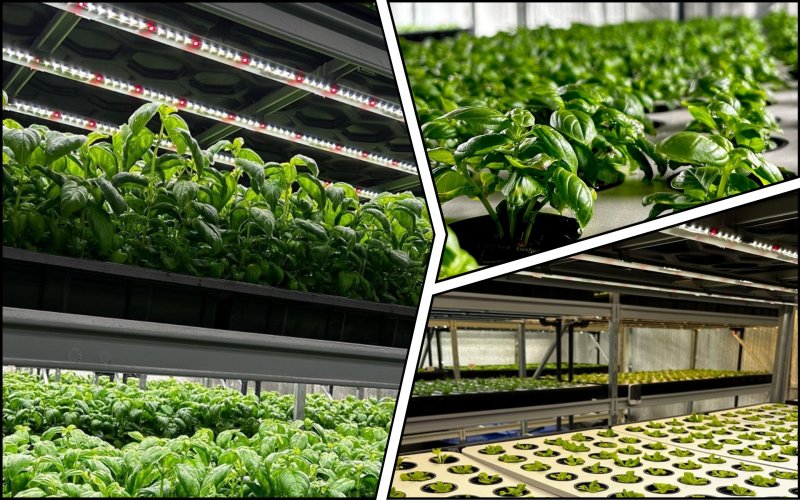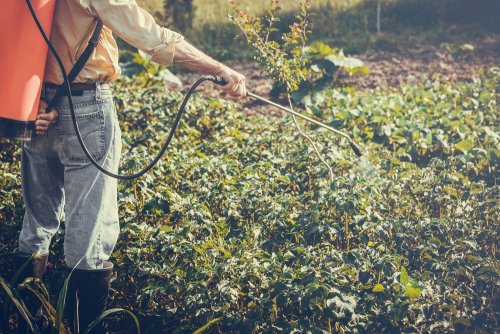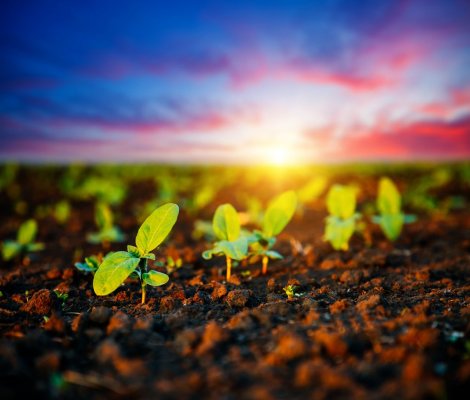Viktor Shuleshko, the founder of vertical farms in Dnipro Green Future, said that thanks to his own invention of agro-lighting, his farm became the most energy-efficient in the world – 30% more efficient than other industry leaders.
Electricity costs make up 60% of cultivation costs, and to reduce consumption, modernization of lighting systems is necessary, he said in an interview for LIGA.net.
It is noted that the production is located in a basement with an area of 300 m2, with a ceiling height of 5 meters. The growing system is divided into modules, namely four levels of racks with a total area of 16 m2. The farm is designed for 20,000 plants.
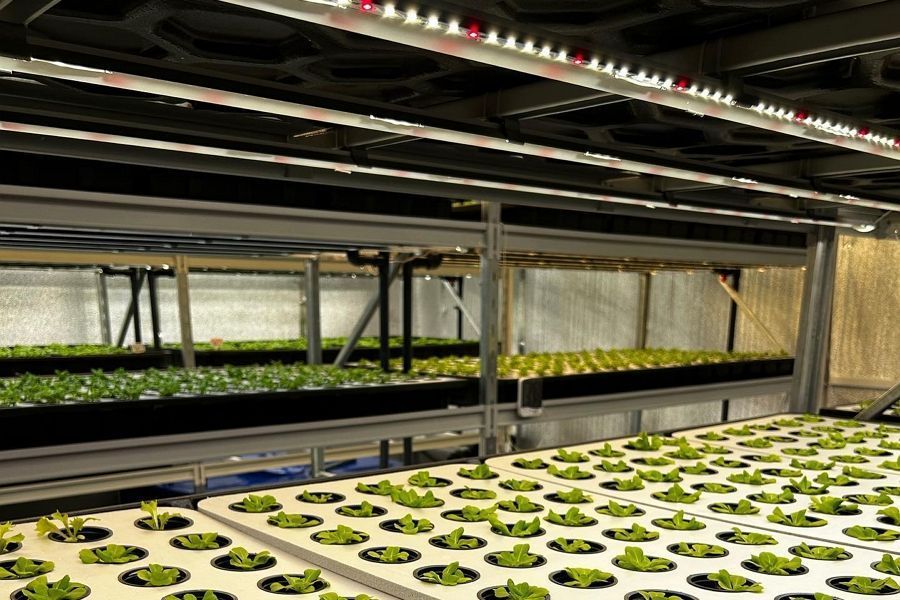
biz.liga.net
The main challenges for Shuleshko and other farmers at the moment are power supply interruptions and the price of electricity (10 hryvnias per kilowatt-hour), which significantly increases the cost of production.
In order to find an energy-efficient solution, Shuleshko travels to greenhouse plants in Ukraine, conducts experiments and tests various lamps.
"Energy consumption can be reduced only by modernizing lighting systems . We develop the most effective agricultural lighting systems in the world, and it is proven. From the experience of our own laboratory and testing lighting modes, we came up with very cool indicators. We are now 30% more efficient than the coolest vertical farms in the world," said the farmer.
He proved that his technology is the best thanks to the control of the lighting system.
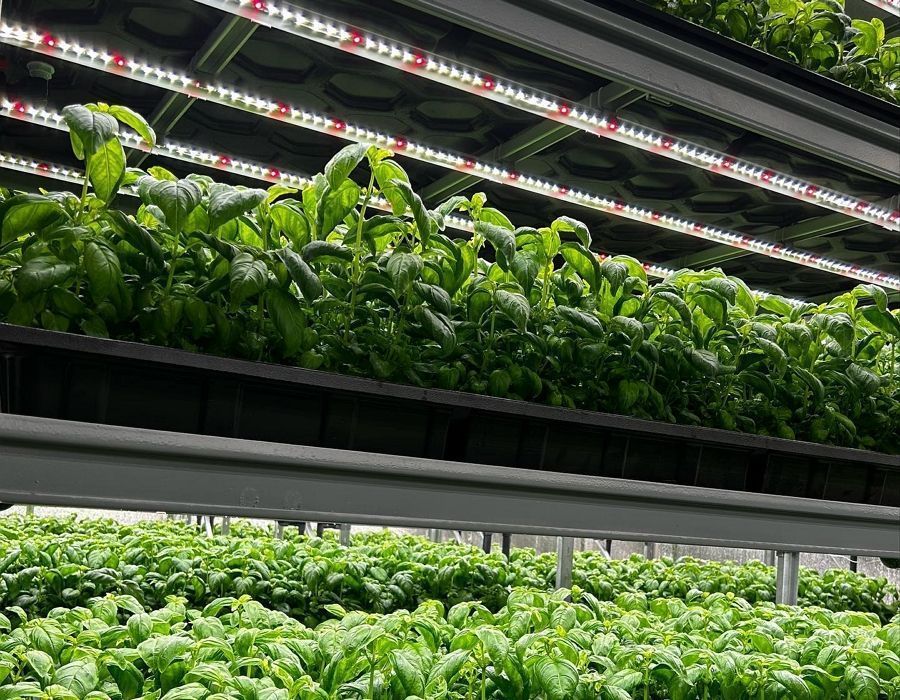
biz.liga.net
The article emphasized that such agro-lighting systems are in demand among leading Ukrainian farms ("Eko Ferma", "Mizeriya" in Ivano-Frankivsk, "Zelena", etc.). In addition, Green Future has customers in Austria, the Czech Republic and the UAE.
Shuleshko added that the farm also produces fertilizers with a unique formula.
"Our global commercial goal is the sale of technology. After all, building a vertical farm is not difficult, but making it efficient is a more difficult and important task," he said.
It is noted that basil is grown on the farm. In September, Green Future plans to expand its range and enter the market with new products, namely growing spinach, coriander, arugula mizuna. The company has already signed an agreement with the Fozzy Group supermarket chain and supplies basil to 8 supermarkets in the Dnipro region.
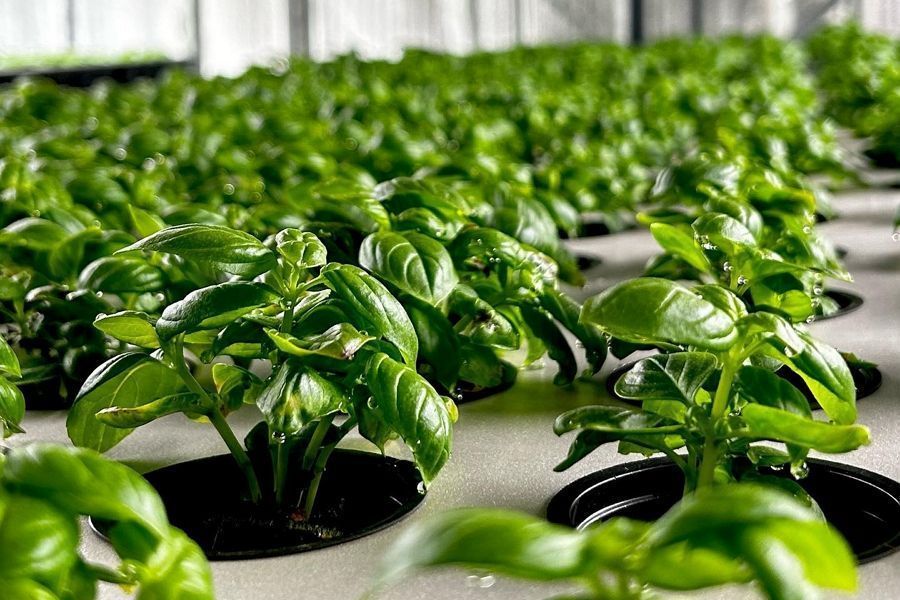
biz.liga.net
"Now there is active import substitution. For example, there is a crop failure in Holland, and that is why tulip farms have started to be built en masse in Ukraine. Of course, greens will be brought from abroad. But transportation and packaging takes part of the products for disposal. That is why many enterprises switch to local producers There is also the issue of the carbon footprint – how much CO2 and CO was released into the atmosphere during the transportation and storage of products," Shuleshko said.
He added that another problem of the agricultural sector is the lack of specialists. Therefore, Shuleshko began to develop projects that will allow young people to gain knowledge and practice, in particular, a memorandum with the Dnipro Agrarian University is being prepared.
As EcoPolitics reported earlier, eco-activists debunked the most popular myths regarding the “environmental” nature of organic products.

